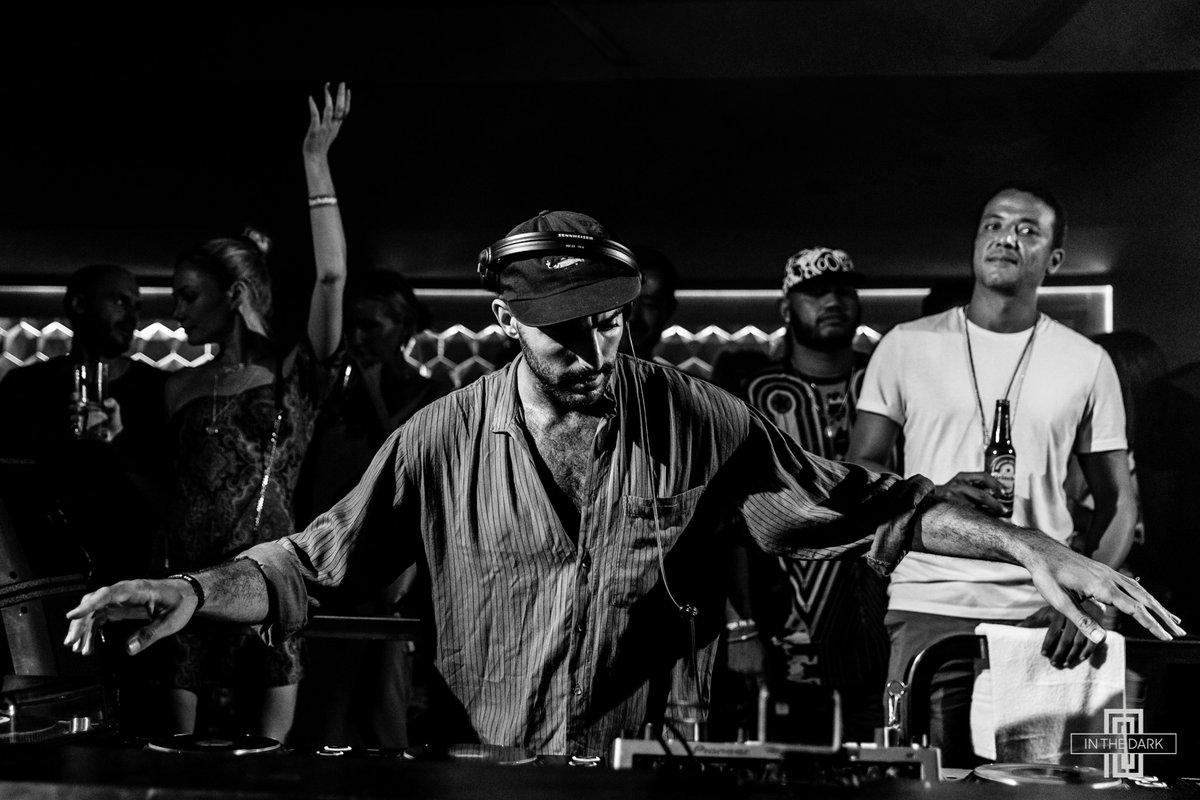A deep-rooted love for music, passed down from a musical family, has placed Bas Ibellini in a fortunate position. Years of hard work, from pushing himself to become an expert turntablist as a youngster to putting on his own ‘Peculiar’ parties in East London, have laid the foundations for his growing success. When Bas isn’t touring or in the studio, organising the perfect party for friends and booking world class acts is his passion. Previous guests have been Seth Troxler, The Martinez Brothers, Guy Gerber, The Mole, Herodot to name a few.
On the production tip, Bas has taken a considered though enthusiastic tact, spending days on end toiling away in the studio. Learning the craft inside out, he prefers to take his time to release music. Over the last three years he has released on Seth Troxler and The Martinez Brothers’ Tuskegee imprint, and Damian Lazarus’ Crosstown Rebels label. We had the honor to welcome him on Revolver with this in-depth interview, here’s how it went.
Tell us a bit about your journey, before the beat lights went off and the beat dropped, what drove you to dive into electronic dance music?
I got hooked on music from a young age; playing instruments and collecting music was part of my day to day. The moment I started going out, I would enjoy the social aspect so much, I knew that I needed to curate my lifestyle around music and parties. My first experience for electronic music was in Tunisia; I’d go on family holidays to Sousse and Hammamet where they had a massive outdoor electronic music scene. Seeing people celebrate life really triggered something in me from an early age. Unfortunately Tunisia’s tourism and nightlife is struggling because of idiots around the world.
Take us through your creative process when it comes to production. What inspires you? Do you have any ritual to get your juices flowing?
It’s all about how I start the day. A little work out gets my juices flowing and I generally channel those endorphins into some magic on my gear. It’s about having an open mind and being able to take inspiration from anything.
Your music is known to vary from ambient and therapeutic to fast and techy. What defines a sound element that fits within your sound spectrum?
Grooves and emotion are the basis for my foundations. I prefer longer sets so I can explore different cultural references and feelings. That being said, I love going off off-piste and travelling to unfamiliar territories.

What’s your secret weapon when it comes to creating your signature sound textures?
A track only feels complete for me when I’ve fused elements of live recording and analog synthesis. Sprinkle some ridicule; and that pretty much sums me up. I enjoy having many layers of frequencies crossing over each other, the perfect recipe for happy mistakes.
You have a very peculiar taste when it comes to track selection, it’s smooth, uplifting with evolving soundscapes. Tell us about your criteria for selecting tracks and dropping them sequentially in your sets.
It’s all about energy and intuition; they make me play differently every time. I go with the instruments given and curate my selection around that. The audience and setup of the venue are what determine my direction.
Can you name 5 non-electronic albums that have shaped your ideology as a musician?
- Dre 2001
- Arthur Russell – World of Echo
- Sun Ra and his Arkestra
- J Dilla – Donuts
- Pink Floyd – Dark side of the moon
- 2 Many DJs – Radio Soulwax
So what’s in the pipes for you? New releases? projects? Collaborations? highlights?
Pipes are clean and healthy right now. I have a whole bunch of concepts I’ll be working on after the summer, collaborating with all kinds of artists, from visual to more song-based musicians. I randomly got asked to remix a Lebanese band, which should hopefully be released in the near future.
The DJ/Producer trend is picking up, if you had to give today’s producers a piece of advice, what would that be?
Explore non-club music as much as possible and incorporate it into your lifestyle. This sets patterns in your subconscious and will inspire you when it comes to making music. With synthesis, it’s vital to start with one piece of analog kit and then learn it on the inside out. Once you understand the fundamentals of one, you can incorporate this into most synthesizers.

